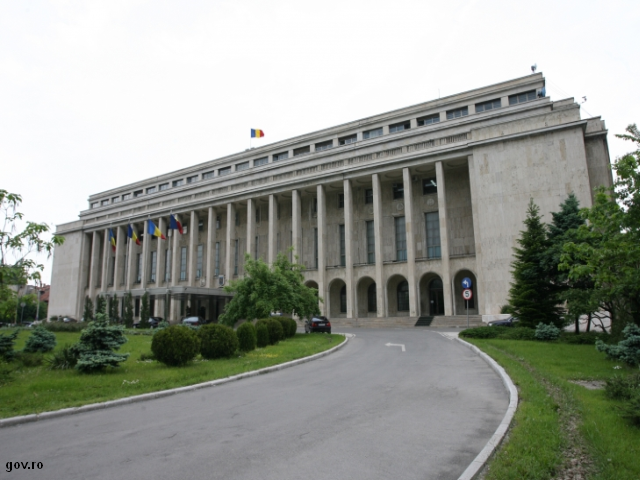Parliamentary hearings for the new cabinet, completed
The hearings of the ministers designated to be part of the Florin Cîţu cabinet have come to an end.

Roxana Vasile, 06.03.2020, 13:50
The ministers nominated in Liberal PM designate Florin Cîţus cabinet have been interviewed by Parliaments specialist committees for the past 3 days. Nine of them got the green light, seven didnt. The nominations for the Defence Ministry, Environment Ministry, Agriculture Ministry, Transport Ministry, Youth and Sports, Foreign Ministry, European Funds, Economy and Interior Ministry have been endorsed by MPs. The parliamentary committees however opposed the nominations for new public finance minister, justice minister, public works minister, culture minister, public healthcare, public education and labour minister. The interim PM and president of the National Liberal Party Ludovic Orban was happy with how the nominees handled the situation:
Ludovic Orban: “These hearings involve facing rather demanding MPs, a lot of trick questions prepared for the interviewees which forced them to come up with answers… The thorough knowledge of their respective fields, gained in a rather short time, has ensured the high quality of their performance, and I can tell you that many of those who voted in favour did so because they were content with the answers given by the ministers designate.
After the ministers designate have been heard by the specialist committees and the latter announced their opinions and arguments, the Standing Bureaus of the Chamber of Deputies and the Senate are to convene and set a date for a joint Parliament meeting devoted to the investiture vote. The governing program and the list of ministers must be discussed by the Senate and Chamber of Deputies in a joint meeting, and a vote will follow.
The date of the investiture vote will be decided next week. The joint meeting can be scheduled by Friday at the latest, but the Liberals would like it to take place as soon as possible. In order to be endorsed by Parliament, the new Cabinet needs 233 votes. The problem is that the vote is shadowed by the issue of early elections, a goal pursued relentlessly by President Klaus Iohannis and the Liberal Party. Unlike the Social Democrats in opposition, the Liberals rely on their good results in last years European and presidential elections, and feel confident they can put up a fine performance again.
The current situation is the consequence of Liberal Ludovic Orbans government being dismissed through a no-confidence vote in Parliament in early February. President Iohannis entrusted the same Ludovic Orban with forming a new cabinet, but the investiture vote could not be held for lack of quorum, and within days, Orban resigned as PM designate. If anything, this goes to show that the political reality in Bucharest is made, unmade and remade at the speed of light, so nothing is set in stone until Parliaments confidence vote on the Cîţu government.
(translated by: Ana-Maria Popescu)






























